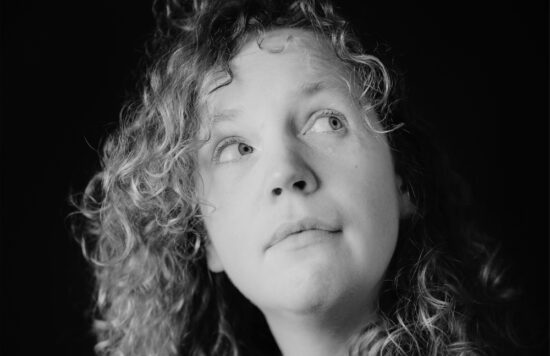Magazine Submission Review
Overview
This is a fascinating group of poems, which manages to be both intellectually stimulating and emotionally engaging. Your narrator – the poems seem spoken by the same character throughout – is depicted struggling with the important questions of their life: who am I now that this has happened (there’s a recent grief, which might be a loved one departing or a family member dying)? What should I do next?
Underlying this investigation, though, it’s clear you’re raising even larger questions. What is grief, and the reason for living on in its shadow? What does it mean to feel cast adrift from our former selves? And what, ultimately, does it mean to live a good, full life?
I think the primary challenge you face in tidying these poems is ensuring you strike the right balance between the tight, engrossing specificity and detail of a life lived, and the more abstract and philosophical musing of generalised human experience.
Your handling of sentence, metre and prosody in general is strong, but I think there are points you could take it even further, especially in the service of the detail I mention above. Let me look at some individual poems to show what I mean.
Close Readings
‘The Peaches’
This is one of my favourite poems from the group – it’s got an almost sly sweetness, which wrests humour and humanity from despair – but it does suffer a little from trying to include both personal reflection and generalised abstraction. Take the lines:
and this is why we are
all standing at the market stall now
handling the peaches of our
summer days, a little morbid
and greying at the temples
As so often, you find a wonderful symbol in the way the peaches stand in for happy memories and are pored over like fruit at a market stall (could you take this even further? Could the fruit be damaged or dirtied by being so often handled?). But I think you could trust your audience more: you set us up to generalise with ‘and this is why we are / all’, but it’s a paradox of poetry that your reader will intuit – even better, will feel – that generalisation more strongly if you limit its scope to only your speaker. End the poem with the speaker standing at a specific market, on a specific European holiday, and the peaches and their symbolic freight come to seem all the more real.
This is true for other moments of the poem, too – the way you move to the abstraction of ‘every luncheon ever taken’, say, or ‘all the train stations in Wales’. You might allow yourself one such opening out in a poem, but throughout these six poems it’s a move you make a little too often.
‘Sadness in Prague’
Another strong poem, but also an opportunity to just tighten up the music of your poetry a little. Take the second stanza:
the light on the wet cobbles,
the bright neon of the supermarkets,
the rusty gutters of the churches,
the shoals of human perch…
As always, there’s plenty to admire (the – forgive the pun – guttural assonance of ‘rusty gutters’ is particularly striking), but given the high standards you achieve elsewhere, I think you could do more here.
Firstly, the anaphoric repetition of ‘the’ at the start of each line becomes a little repetitive and unrepresentative of the variety of images being portrayed. Breaking the lines more oddly might create more rhythmic dynamism but also mirror the heterogeneity and randomness of the city.
Secondly, you might consider revisiting your adjectives: both ‘wet’ and ‘bright’ seem slightly generic, not quite carrying their weight (except the slightly easy internal ‘light’/‘bright’ rhyme). A strategy I often use is to approach each class of words at once (are the adjectives striking enough, and have I been ruthless in cutting as many as possible? Are the verbs lively enough? Are my nouns sufficiently concrete?) and use that, not only as an opportunity to rethink vocabulary, but also to rethink metre. For example, if you look at ‘wet’ here you might realise (I’d suggest!) that a trochaic adjective (two syllables, emphasis on the first) might sound nicer, say:
the light on the shining cobbles, the
erring neon of the markets
and the churches’ rusty gutters above
the city’s human trade-wind…
Obviously this is just an example of the kind of edit you might undertake – I’m sure you could do even better!
Conclusion
Although the examples above are quite specific, I think they’re emblematic of some of the (mostly) strengths and (occasional) weaknesses of these poems. ‘The Peaches’ and ‘Sadness in Prague’ are strong, whereas I think ‘Doolittle’ errs too far into philosophical abstraction, and ‘All My Windows’ – although it ends with my favourite line of the whole collection – feels in places a little too ‘obvious’: we know exactly what the author thinks and what the images stand for, and as a reader, we aren’t challenged at all.
But I think that if you look again at locating your profound thoughts (and they are often profound, as well as genuinely moving) more firmly within the lived experience of the narrator, and if you just take one final pass to make sure your language is as taut and vibrant as it can be, then you’ll have a very strong submission here indeed.
In fact, I’d recommend that you consider trying the top UK magazines like Poetry Review or Poetry London with these – in particular they seem like the kind of poem André Naffis-Sahely at Poetry London might be interested in. No guarantees, but they’re of a standard to be in with a chance, and you can always try other places if you don’t get anywhere there. Best of luck!





